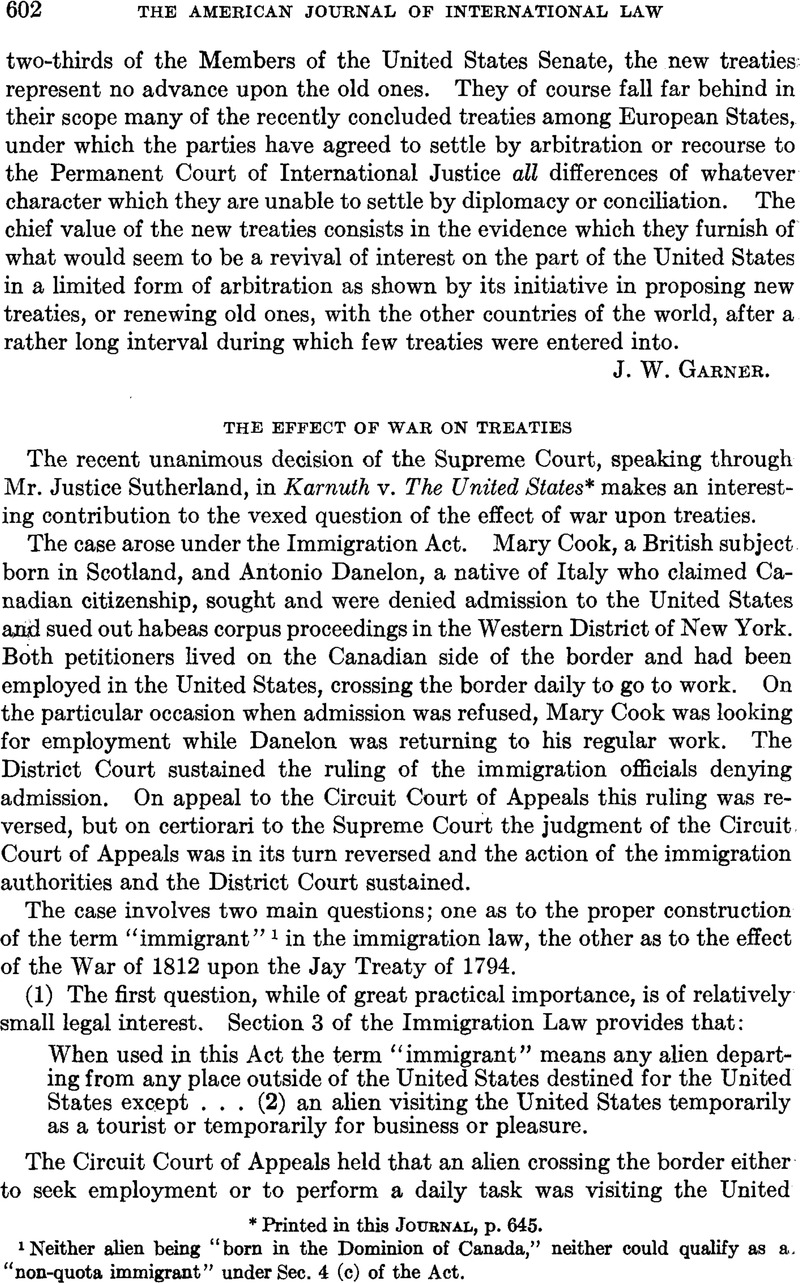Article contents
The Effect of War on Treaties
Published online by Cambridge University Press: 04 May 2017
Abstract

- Type
- Editorial Comment
- Information
- Copyright
- Copyright © American Society of International Law 1929
References
1 Neither alien being “born in the Dominion of Canada,” neither could qualify as a,“non-quota immigrant” under Sec. 4 (c) of the Act.
2 Society, etc. v. New Haven, 8 Wheat. 464, 491; Sutton v. Sutton, 1 Russ,& M. 663, 675.Judge Washington's opinion on this point in Society v. New Haven, however, although perhaps not in strictness a dictum only, was, apparently, in the view of the court, not necessary for the decision of the case.
3 U. S. ex rel. Diabo v. McCandless, 18 F. (2nd) 282; McCandless, Commissioner of Immigration v. Diabo, 25 F. (2nd) 71.
4 Act of April 2, 1928, 45 Statutes 201, 308, cited, Brief of the United States in Karnuth v. U. S. 27.
5 Secretary Bayard to Messrs. L. and E. Lehman, June 23, 1885, 156 MS. Dom. Let. 80, Moore: Int. Law Digest, Vol. V, p. 374; Memorandum of the Acting Secretary of State to the Senate, March 27, 1919, cited, Brief of the United States in Karnuth v. U. S., p. 42.
6 The Brief of the United States (p. 29) cites the following pertinent passage from Wheaton on this point: “ Most international compacts, and especially treaties of peace, are of a mixed character, and contain articles of both kinds, which renders it frequently difficult to distinguish between those stipulations which are perpetual in their nature, and such as are extinguished by war between the contracting parties, or by such changes of circumstances as affect the [well] being of either party, and thus render the compact inapplicable to the new condition of things.” (Wheaton, Elements of International Law [Lawrence's 6th Ed.,]p. 343).
7 As the court points out, the reference in Article 28 to the first ten articles as “ permanent,” which is noted in the opinion of the Circuit Court of Appeals, was merely intended to differentiate them from the subsequent articles which were of expressly limited duration. It has no bearing upon the question before the court, viz., the effect of war upon the treaty
- 1
- Cited by




